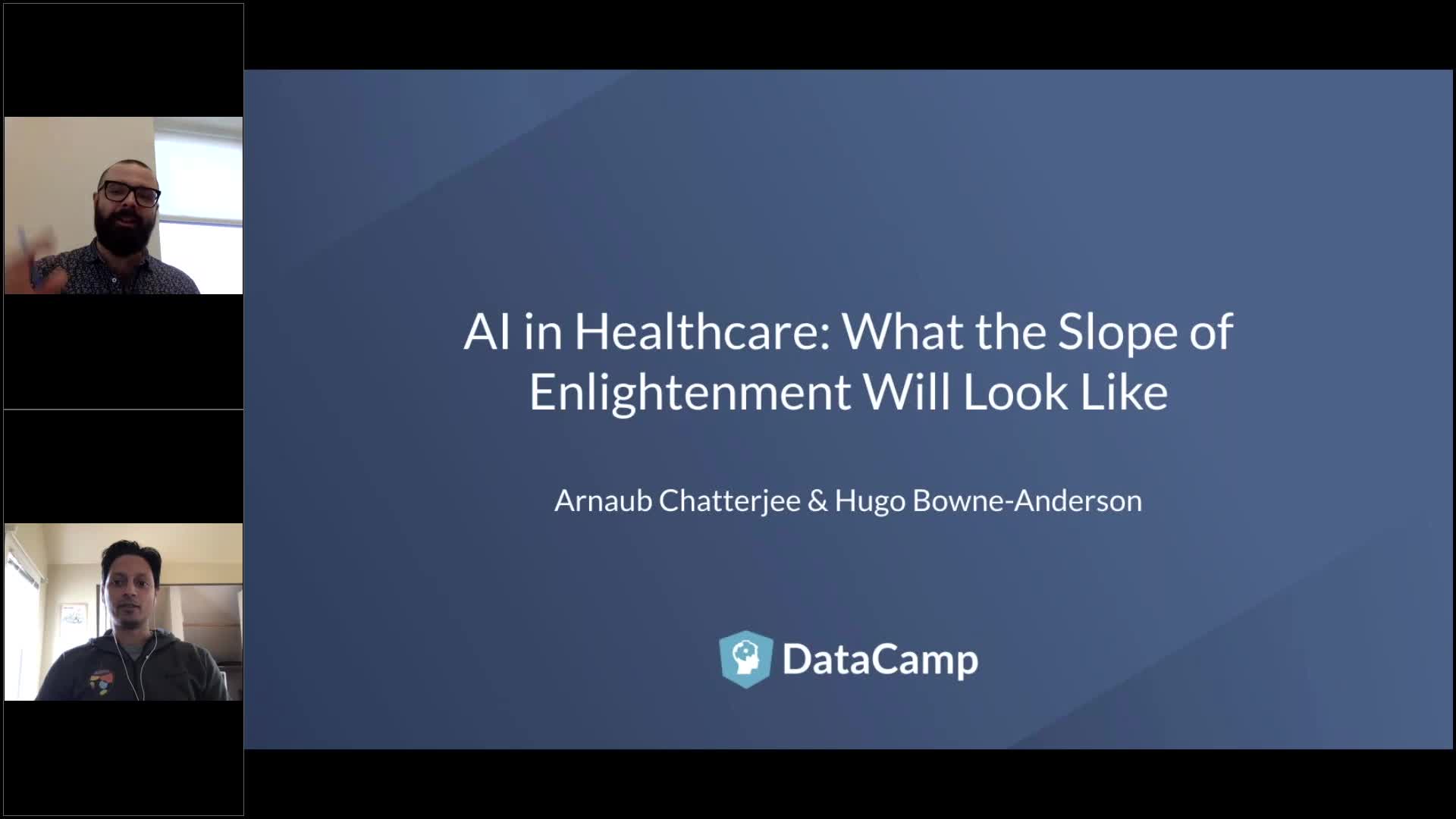Falantes

Arnaub Chatterjee
Treinar 2 ou mais pessoas?
Obtenha acesso à biblioteca completa do DataCamp, com relatórios, atribuições, projetos e muito mais centralizadosRelacionado
webinar
Cutting Through the Hype: An Insider’s Account of AI in Healthcare
Here's the real deal about AI and machine learning in healthcare.webinar
How Data Science is Transforming Healthcare
Learn how data science is transforming healthcare across verticalswebinar
How AI Can Improve Your Data Strategy
Find out how AI, ML, and data science can inform your data strategy.webinar
Artificial Intelligence for Business Leaders
We'll answer the questions about AI that you've been too afraid to ask.webinar
Leading with AI: Leadership Insights on Driving Successful AI Transformation
C-level leaders from industry and government will explore how they're harnessing AI to propel their organizations forward.webinar
Scaling AI Adoption in Financial Services
Explore regulatory AI initiatives in financial services and how to overcome themJoin 5000+ companies and 80% of the Fortune 1000 who use DataCamp to upskill their teams.
Loved by thousands of companies
